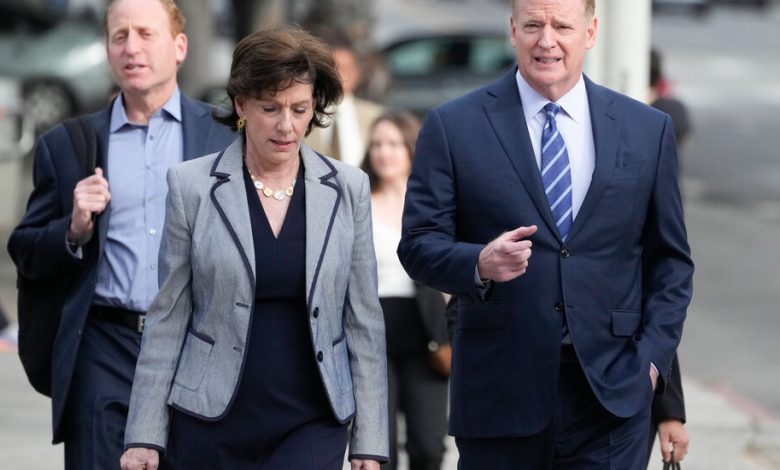Why the N.F.L. Put a $7 Billion Antitrust Case in the Hands of an Unpredictable Jury

A pillar of the N.F.L.’s meteoric rise over the past six decades has been its strategy of making nearly all games available mostly free to fans on national networks. The league has stuck to this approach even as Major League Baseball, the N.B.A. and other leagues moved more of their games onto cable and satellite broadcasters and subscription streaming services.
The strategy has paid off: Ninety-three of the 100 most-watched programs on television last year were N.F.L. games, according to Nielsen.
Yet N.F.L. games are not cheap and ubiquitous enough for all fans. This month, the league has been in federal court in Los Angeles fending off a class-action suit brought by millions of customers who paid for Sunday Ticket, the subscription service on DirecTV that showed all out-of-market games on Sundays.
The plaintiffs claim that the N.F.L. colluded with CBS and Fox to artificially inflate the price of the service, which cost roughly $300 a season, because the networks viewed Sunday Ticket as competition. The plaintiffs argue that the N.F.L. dismissed offers to create cheaper services that would have let fans buy games based on teams. They are seeking damages of $7 billion, which could be tripled under antitrust statutes. That could take a significant bite out the league’s annual media rights, which are now worth more than $10 billion a year.
Some businesses might have settled for far less to avoid the risk of going to trial and facing an unpredictable jury. But the N.F.L. has taken its chances in court because it wants — indeed needs — to preserve the right to cut exclusive media deals on behalf of all 32 of its teams. Congress granted the N.F.L. an exemption to do so in 1961, and it has fueled the league’s growth ever since.
The N.F.L. is now a $20 billion business and its success is in part to the sharing of its rights deals, which are split evenly among all 32 teams. This formula helps teams in small media markets, like the Kansas City Chiefs, to compete for players with New York teams.